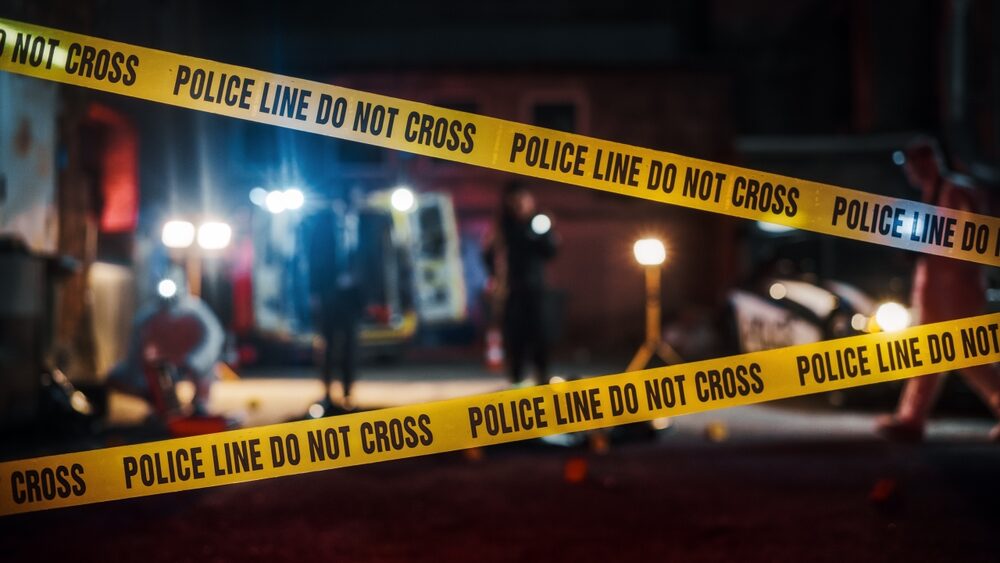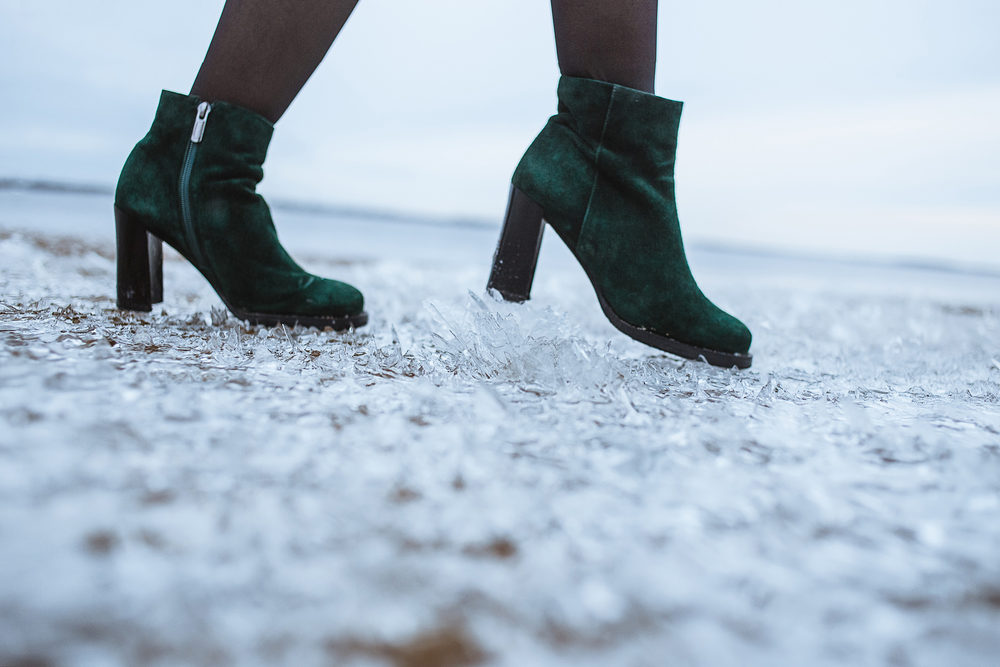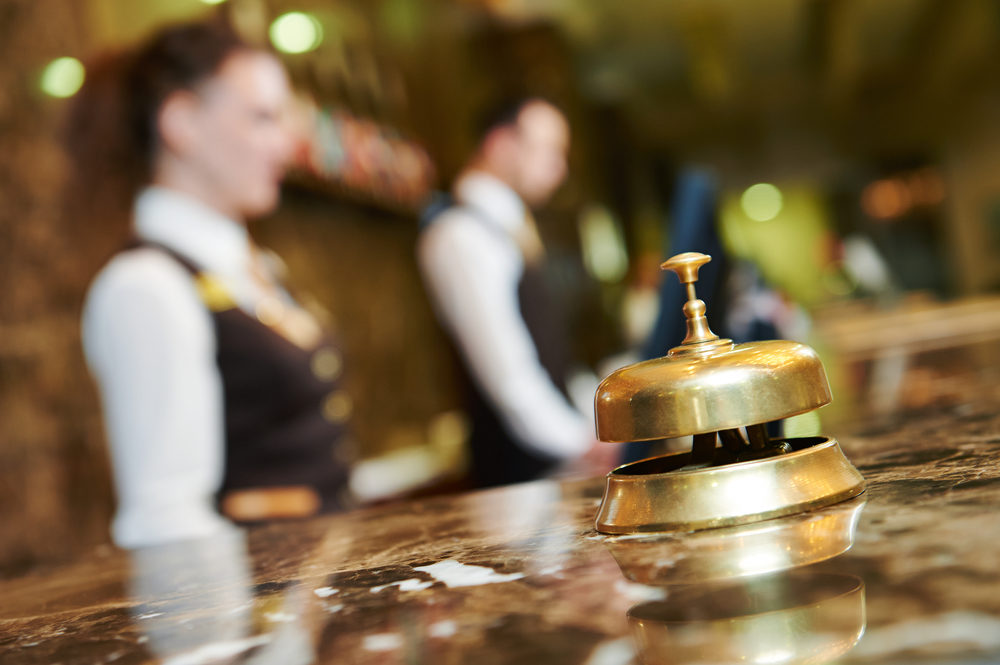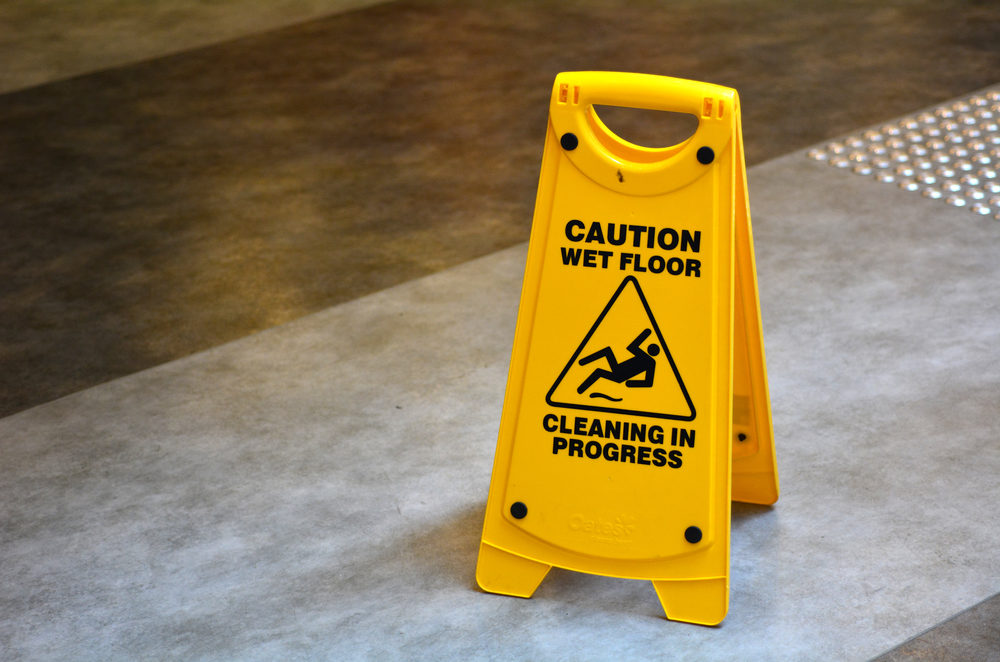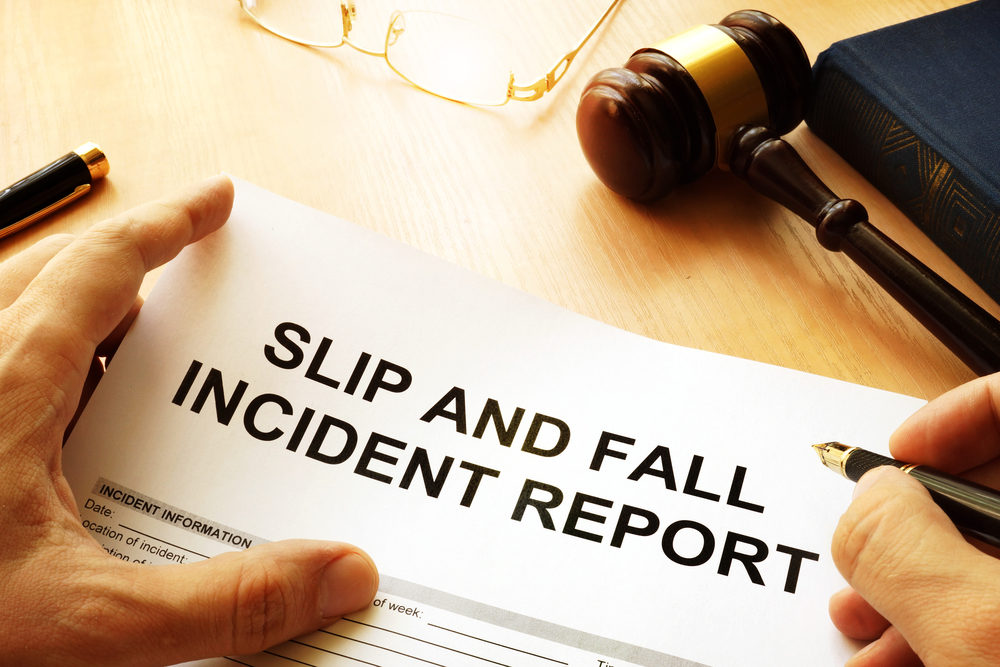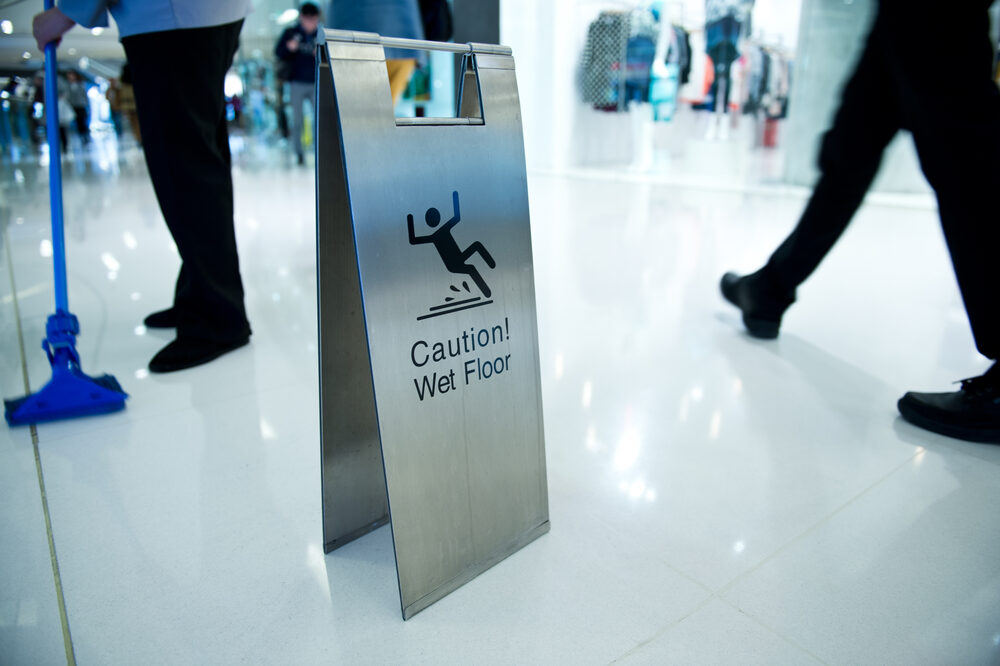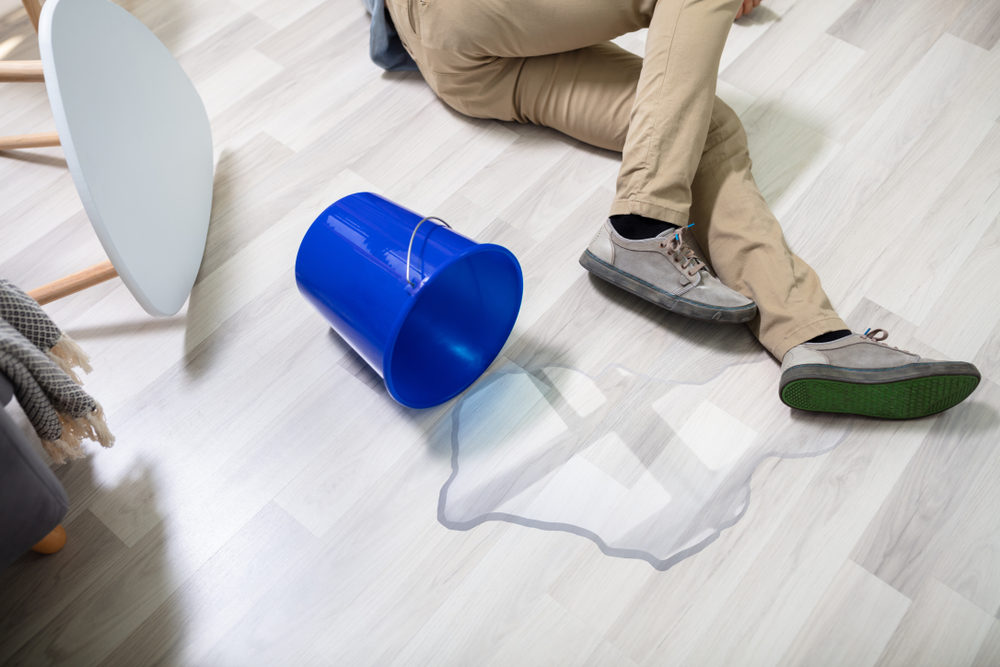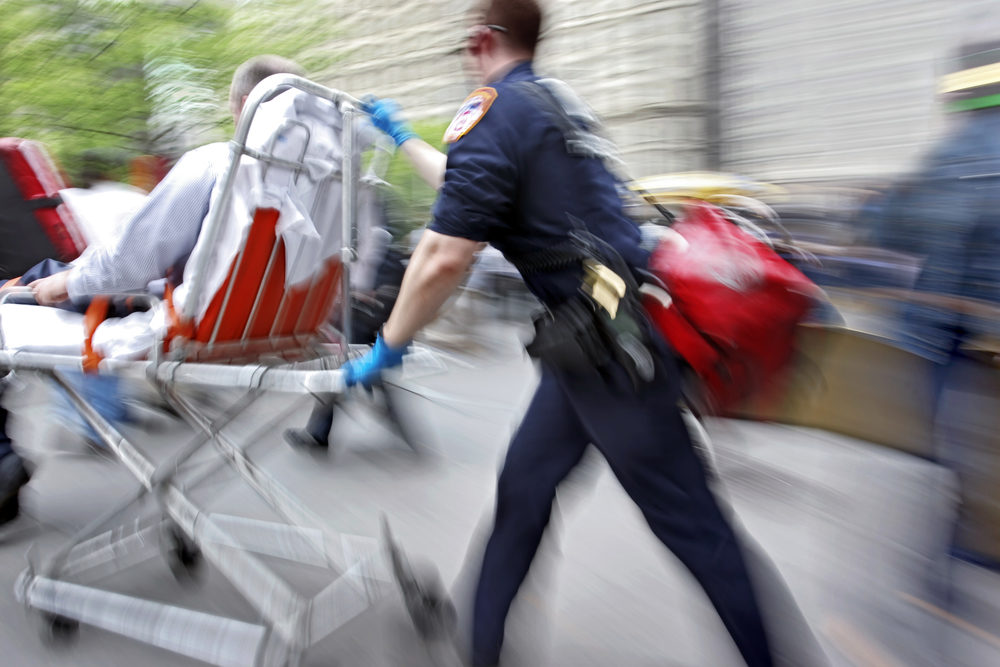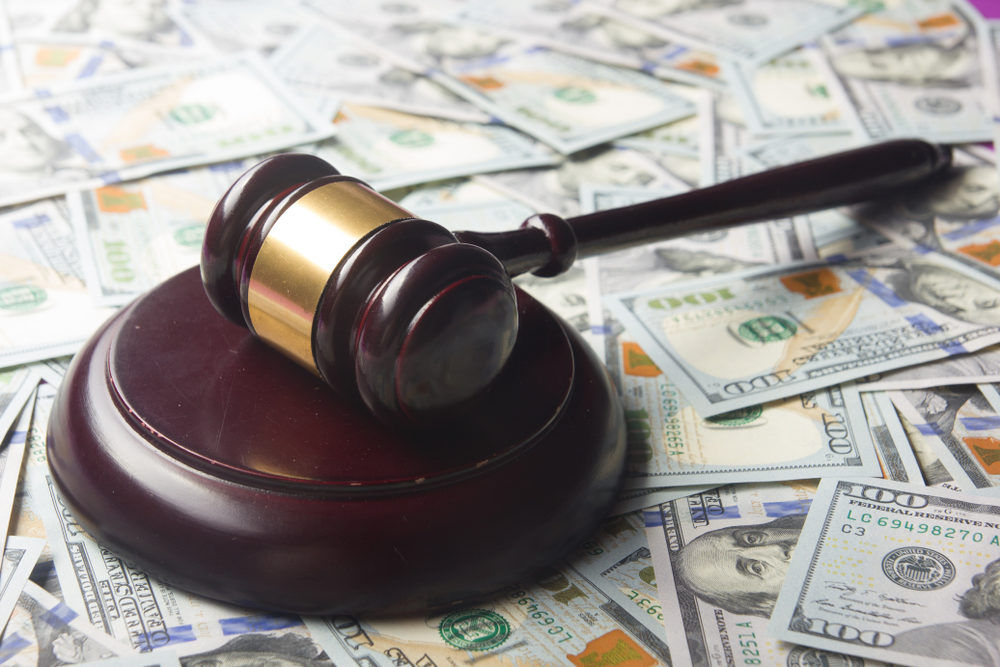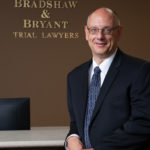Many people suffer serious injury each year while visiting someone else’s home or place of business. “Slip and Fall” accidents are one of the most common forms of premises liability injuries. Common conditions that lead to premises liability injuries may include wet floors, uneven steps or floors, falling objects, inadequate security, dangerous conditions and the like.
Premises liability deals with the breach of duty that is owed by an owner or occupier of property to protect invitees from dangerous conditions and defects on the property. The owner/occupier has a duty to exercise reasonable care in the management of the premises to ensure persons are protected from an unreasonable risk of harm.
Duty to Keep Property Reasonably Safe
 In most every state, a property owner, including a tenant in possession of property, has a duty to exercise reasonable care for the safety of people lawfully on the property. In the simplest of terms this means the owner bares the obligation to inspect the property. Should the owner find any dangerous conditions, they must either repair those conditions or adequately warn the visitors of potential danger.
In most every state, a property owner, including a tenant in possession of property, has a duty to exercise reasonable care for the safety of people lawfully on the property. In the simplest of terms this means the owner bares the obligation to inspect the property. Should the owner find any dangerous conditions, they must either repair those conditions or adequately warn the visitors of potential danger.
If the owner of the property is aware of a dangerous condition, but fails to do anything, the owner may be held liable for any injuries suffered by visitors due to that condition. The property owner’s duties can vary depending on the legal status of the injured person. For example, the duty can vary depending on whether the person was visiting the premises by invitation or if they were trespassing.
A property owner or person in possession of the property bares the legal responsibility for the safety of the premises.
Property Owner Duties and Responsibilities
Property owners owe varying responsibilities, or duties, to those people who come to their property, depending on legal category of the person involved. The law acknowledges three main categories of people who may be on someone else’s property, they are: licensees, invitees and trespassers. The greatest duty is to those who are considered “invitees.” In the states that acknowledge these legal categories, the legal duties owed to each category can differ greatly. It is imperative to ask an attorney if these standards and categories apply within your state of residency.
Three Legal Categories Explained
Invitees – An invitee is an individual who is invited onto the property by the possessor of the property, such as a member of the public, or one who’s invited to the property for the purpose of business dealings. Under such standards, a property owner not only bares a duty to repair or correct any known dangers, he also bares the responsibility to inspect, discover and correct any hidden or unknown hazards on the areas of the premises which an invitee would typically have access.
Such obligations mean the property owner or possessor (a business that occupies the property) has a duty to take reasonable precautions to ensure the environment is safe for all visitors. While there is no exact way to measure what is deemed as reasonable, the law defines reasonable as what a person of ordinary judgment and intelligence would do in the same circumstance.
To better explain, we offer the following example: it may appear reasonable to expect a business owner to conduct inspections on a regular basis, or to maintain and clean stairwells on the property to make sure they are safe and free of hazards. In the reverse, it would be unreasonable to expect a business owner to keep watch all day long to make sure nothing is spilled on the stairs.
Licensees – A licensee is someone visiting the premises for a social function, or solely for their own purpose. Property owners must ensure conditions are safe for all licensees, but the level of care owed to licensees is considerably lower than that owed to invitees. A property owner is only required to take reasonable care to protect licensees from any known hazards on the property; however they do not have a duty to inspect and discover unknown dangers.
Trespassers – A trespasser is an individual that is unauthorized to be on the property. Trespassing and premises liability law is complicated, and often situational. Property owners are not required to protect trespassers who enter the property without proper permission, but they cannot willfully injure them either. If a property owner knows there are frequent trespassers on his property, he can be held liable for any injuries caused by unsafe conditions on the property if: the condition was created or maintained by the owner, the condition is likely to cause serious injury or death or if the owner failed to exercise reasonable care to notify trespassers of the dangerous conditions and risks involved.
The rules change when young children are the trespassers. In the case of a child wandering onto the property without proper authorization, the property owner still has a duty to ensure the property is safe. The reason for this exception is that children are often times naïve to dangers on property and can in fact by lured to investigate a dangerous condition such as an abandoned well or maybe a big piece of machinery. Such potential hazards are known as “attractive nuisances.” As such, a property owner has the duty to inspect the property to ensure there are no potentially unsafe conditions that may attract children.
A property owner may be liable for an injury to a trespassing child if they were aware of, or should have known, young children may likely trespass in the area of a dangerous condition on the property that involved an unreasonable risk of bodily harm to children.
Safety and Prevention
While the requirements may vary from state to state, periodic inspections tailored to the needs of the property can dramatically reduce the number of falls and premises liability incidents that occur. The inspections should be performed by a trained individual in hazard recognition. Any identified hazards should be addressed immediately to help reduce exposure to invitees, trespassers and licensees. Management follow-up is vitally important to ensure the defects are corrected or the proper warnings are established in a timely manner.
Remember, as an individual, you need to understand that no one can guarantee absolute safety. Be aware of your surroundings and try to avoid dangerous situations and places at all costs.
Premises Liability
Premises liability deals with the breach of duty that is owed by an owner or occupier of property to protect invitees from dangerous conditions and defects on the property. The owner/occupier has a duty to exercise reasonable care in the management of the premises to ensure persons are protected from an unreasonable risk of harm. Premises liability laws make the person who is in possession of land or premises liable for injuries suffered by persons who visit the premises. While some premises cases appear simple, knowing the law is essential. In some states the law is set up to favor the premises owner not the victim. In other states, the law favors the one who is injured.
If you were injured while visiting a property that belongs to someone else, you should seek legal advice as soon as possible from an experienced personal injury lawyer that handles premises liability cases.
See: What To Do When You Have an Accident on Someone Else’s Property
Possession of Premises Explained
Within the context of premises liability, a person “possesses” land or premises when:
- A person is in occupation of the land with intent to control it;
- A person has been in occupation of land with intent to control it, if no other person has subsequently occupied it with intent to control it; or
- The person is entitled to immediate occupation of the land, if no other person is in possession as just defined.
Most Common Types of Premises Liability Cases
- Dog Bites
- Slip-and-Fall
- Inadequate Security
- Asbestos Exposure
- Roadway and Sidewalk Defects
- Poorly Lit Staircase
- Iced Entranceway to premises
No matter the type of property or injury involved, property owners are liable for all injuries incurred due to hazards associated with their property, whether a home or business. For instance, if a property owner fails to repair a broken step on their property and a visitor falls down those stairs and suffers injury, the property owner can be held liable for the person’s medical expenses and more.
For more details, see: Property Owners Liability – Common Case Types
The Question of Liability
The main issue in a premises liability case is the question of liability. While there may be no denying you are injured, the question is, is someone liable for your injury? Many people assume if they get hurt while on another person’s property due to no fault of their own, then that someone is liable. However, this is not often the case.
According to the law, we hold some responsibilities to one another. If we should fail to live up to that, we breach that responsibility and our breach can lead to someone getting injured, then liability for that injury becomes an issue.
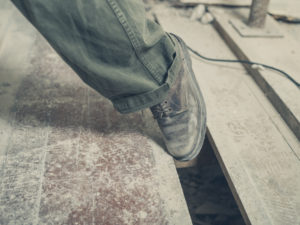 Premises Liability Cases
Premises Liability Cases
Inadequate Outdoor Lighting – can lead to a pedestrian being injured in a parking lot or on a sidewalk. The property owner can be held liable if they knew or should have known about the dangerous situation but failed to correct the problem in a reasonable time frame.
Flooring Problems – can often result in slip-and-fall accidents. A property owner’s failure to provide adequate signs for wet areas, failure to provide proper barriers, excessive floor waxing and more can all lead to a slip and fall accident.
Store Owner Liability – people visit stores to primarily benefit the store owner (i.e. to purchase products and services), store owners have a duty to keep their premises reasonably safe. They must inspect their property for potential dangers and act quickly to fix the problem or adequately warn visitors of the dangers, should they fail to do so, they can be held liable for any injuries that may occur.
Premises liability cases fall into two main categories – Commercial Properties (businesses) and Private Properties (home owners). An example of a Commercial Property case would be if a person falls on ice going into McDonald’s and fractures their ankle. The injured person files a report with McDonalds and the case, if any, would be directed towards them. An example of a Private Property case would be a person who is visiting a friend’s home when they fall on a broken step and fracture their ankle. In such a case the person will be dealing with the friend’s homeowners insurance only they are having problems in doing so.
Even though premises liability cases are extremely situational, there are some general guidelines that help explain the legal process:
The Question of Liability
The core issue at hand is the question of liability. There may be no denying you are injured, but is someone liable for your injury? Many people assume if they get hurt while on another person’s property due to no fault of their own, then that someone is liable. However, this is not often the case. In fact, only 1 out of 10 cases have good liability.
To better explain we offer an example of an injury that would NOT make a good premises liability case:
Using the McDonald’s example above, there was indeed ice and snow on the ground of the storefront. The person slipped and fell. In most states, snow being on the ground is not the question but rather “did the business do their best to keep the area safe for person’s visiting the premises?”
The question at hand is “Was the businesses conduct reasonable?” An experienced premises liability lawyer will first look at weather records. If it has been snowing for two days straight and there was no way the business could have the area in question cleaned, then its not good liability. However, if it snowed for two days ago and the business just left it there while making no effort to make the place safe, then yes, the company may hold some liability.
The most important issue is that the business is making a reasonable effort to keep the premises safe. When dealing with a commercial property, the level of duties increases.
Reasonable Conduct
According to the law, we hold some responsibilities to one another. If we should fail to live up to that, we breach that responsibility and our breach can lead to someone getting injured, then liability for that injury becomes an issue. Business owners have a duty to make sure people are reasonably safe while on the property. If the business fails to make the property reasonably safe and someone is injured then the business owner can be held liable. Often times, it may be a combination of the property owner’s and the injured person’s fault and now they must determine how much liability each party has.
Liability Investigation
The following items will help determine what happened and who is liable. If the case is large enough and serious enough, your attorney may choose to hire an investigator to do the research above with them.
Witnesses – A lawyer will want to know if there were any witnesses to the incident and if so what do they remember?
Incident Report – If the accident occurs on a commercial property, especially a retail store, then there will most likely be an incident report that outlines the accident in detail. Your lawyer will want to read what the company documented from their perspective.
Weather Records – If the accident was weather-related, then your lawyer will want to search weather records from the government, which are highly accurate sources.
Police Report – If the accident was serious enough to involve an ambulance and immediate medical attention your lawyer will also want a copy of those records.
Medical Records – Whether you saw your own medical doctor or took a trip to the emergency room, your lawyer will request a copy of your medical records for review so they can better understand your injuries.
In general, a liability investigation is carried out as quietly as possible. After your lawyer has all the information they need and it looks as if you have a premises liability case, they will put together what is called a “Good Faith Claim.” A Good Faith Claim is another way of saying that given the circumstances there was a breach of duty and that breach means they are liable for the accident (they failed to live up to their responsibility).
Medical Endpoint
When a person reaches a medical endpoint, it means they have done one of two things – they have healed or they are as healed as they are going to be. The lawyer will then work to establish your medical status – are you fully recovered or have you sustained permanent injury from the accident.
Claims Package
Once a laywer has fully investigated the claim and researched the damages that a client can reasonably ask for, that lawyer will submit a Claims Package that will include a Settlement Demand.
The package will include:
- Evidence of Liability
- Evidence of Damage
- Pain and Suffering
- Medical Bills
- Lost Wages
- Lost Vocational Capacity (how much the ability to work has been reduced due to the accident)
The Claims Package will be sent to the insurance company which will include three options – settlement, mediation or trial. Most cases will settle or mediate a conclusion. The rest will end up in trial.
Premises Liability Lawsuits
The discovery process (trading of information between parties involved) is part of the lawsuit process. Your lawyer will get the trial scheduled and in most cases there will be a verdict before going to trial. In most cases, the other side is testing to see how serious you are about going to trial. Most cases can be resolved through settlement once the other side realizes you fully intend to go to trial.
Good Value Claim
It is the duty of the property owner to keep the premises safe, but the individual also has to take reasonable precautions to ensure their own safety.
Comparative Negligence
To help determine any possible resolution, one way that the value of your claims is going to be determined is based on the idea of comparative negligence. In the simplest of terms, how much were you at fault and how much was the fault of the other party.
Comparative Negligence is a partial defense that reduces the amount of damages a plaintiff is entitled to recover in negligence-based claims upon the degree to which the plaintiffs own negligence help to contribute to the cause of damages. When the defense is asserted, in most cases, the jury will decide the degree to which the plaintiff’s negligence verses the combined negligence of all sued defendants contributed to the damages.
When Should You Hire An Attorney?
When deciding to make a premises liability claim, the person must decide if they need to hire an attorney to represent them or if they will be able to resolve the claim on their own. Often times an attorney is not necessary to resolve a claim and it is our hope that the Legal Examiner articles below will help inform you about premises liability cases.
Should you decide to hire a personal injury attorney, take your time and find one that has experience in dealing with premises liability cases. In most personal injury cases, attorney’s fees are charged on a contingency basis. That means the lawyer will take a percentage of the recovery as the fee. In most cases, that percentage is one third. Don’t be afraid to ask questions while picking an attorney, after all, your livelihood is at stake and this decision should not be taken lightly.
Some questions you may want to ask a prospective attorney might be:
- Is the lawyer willing to take the case to trial?
- Do they have experience in dealing with premises liability cases?
- What is their past track record?
Premises liability cases are situational and very expensive and time consuming to prosecute. If you or a loved one has suffered injury while on someone else’s property due to no fault of your own, it is essential to seek the help of a qualified personal injury attorney who has experience and knowledge in dealing with premises liability cases that can protect your legal rights while helping you get the compensation you deserve.

 In most every state, a property owner, including a tenant in possession of property, has a duty to exercise reasonable care for the safety of people lawfully on the property. In the simplest of terms this means the owner bares the obligation to inspect the property. Should the owner find any dangerous conditions, they must either repair those conditions or adequately warn the visitors of potential danger.
In most every state, a property owner, including a tenant in possession of property, has a duty to exercise reasonable care for the safety of people lawfully on the property. In the simplest of terms this means the owner bares the obligation to inspect the property. Should the owner find any dangerous conditions, they must either repair those conditions or adequately warn the visitors of potential danger. Premises Liability Cases
Premises Liability Cases